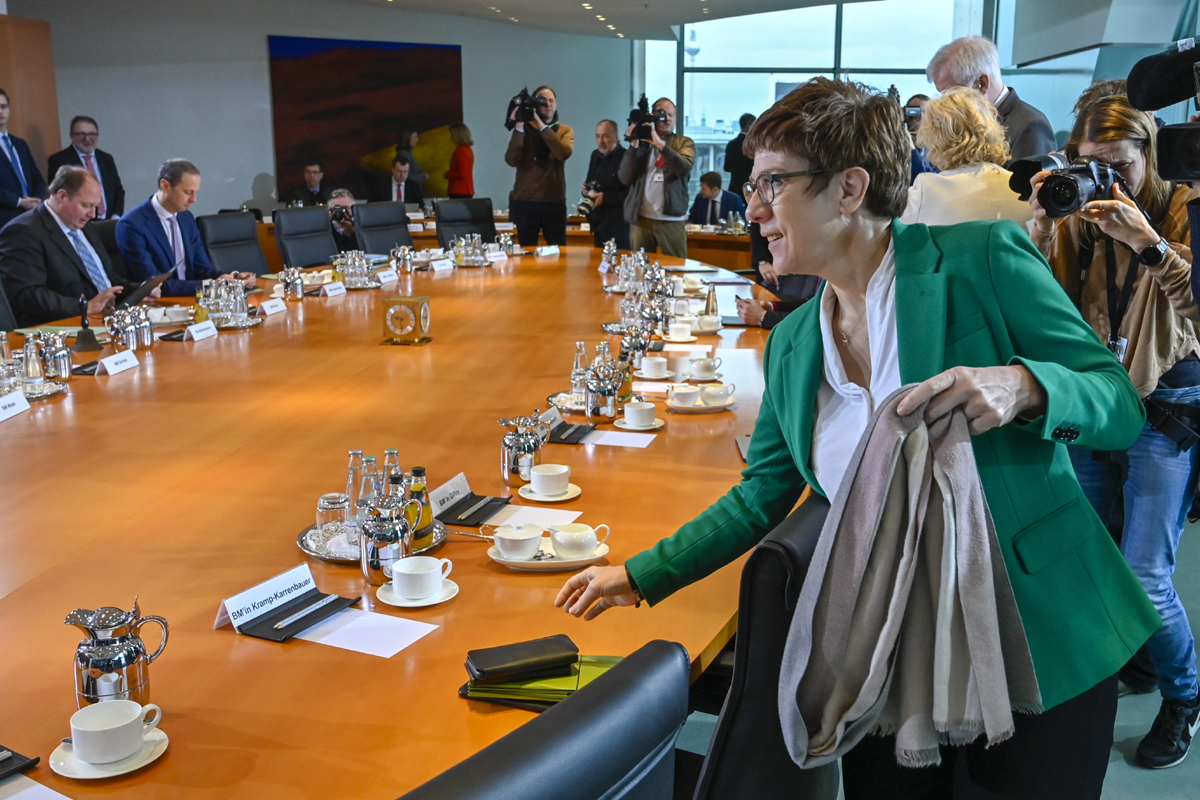Germany is in crisis, indeed a period of profound political uncertainty sparked by the surprise resignation of Chancellor Angela Merkel’s potential successor, Annegret Kramp-Karrenbauer (AKK) in parallel to her withdrawal from the leadership of the ruling Christian Democrats. Pretty obvious must be the party’s dilemma, specifically whether to follow the centrist course or opt for a tougher form of conservatism to woo the voters who are said to have drifted to the far-right Alternative für Deutschland (AfD).
While the contours of the political landscape are as yet unclear, there is little doubt that Ms Merkel’s position ~ pivotal in the context of the migrants issue ~ has considerably weakened in the aftermath of the resignation. It is early days to speculate whether the flux will afford a shot in the arm for the hard right. Suffice it to register that the sudden development in German politics and AKK’s exit from the CDU hierarchy have been described as a “battle for the soul of German conservatism”.
Advertisement
AKK’s move has binned Ms Merkel’s plans for her own orderly retirement and succession. More basically, it is of a piece with the fractured nature of the polity almost throughout Europe. A new leader is expected to be chosen by the end of the year. AKK has conceded that the CDU will be “fit in terms of content, personnel and organisation” for the next federal elections in 2021. Leading members of the CDU and its coalition partner, the Social Democratic Party (SPD), have expressed concern over the timeframe, which they contend is too long. A lot more can happen in the interim.
The longer the wait, the greater the instability, they argue, amid fears that the AfD will seek to fill the political vacuum. In a way, the development mirrors the resurgence of the right, and not merely in Germany. It is the thread that links Berlin to Delhi. Neither elections nor an early conclusion of Ms Merkel’s term in office have been ruled out. There is growing consensus even among her supporters that Merkel’s presence is hindering the CDU’s ability to restructure itself.
The Chancellor has called AKK’s decision “regrettable” and is fairly clear that she has become wobbly at the knees. The challenge posed by the renewed resurgence of the AfD has now emerged as a potent factor to reckon with. Quite the most pressing question is how the CDU should deal with the AfD, to which it has lost millions of voters, amid growing recognition that it is being repeatedly outmanoeuvred by the far right outfit.
At the core of the crisis are the differing opinions as to whether it should exclude the AfD or enter talks with it The foundation of the once vibrant CDU is brittle, one that has been exacerbated with Monday’s resignation of Annegret Kramp-Karrenbauer. Germany has had a heady political history, after all.











